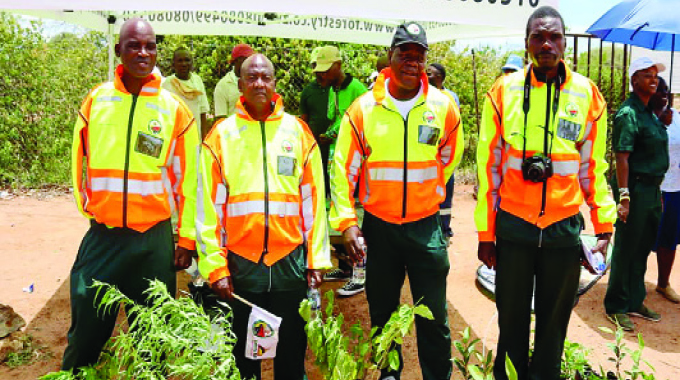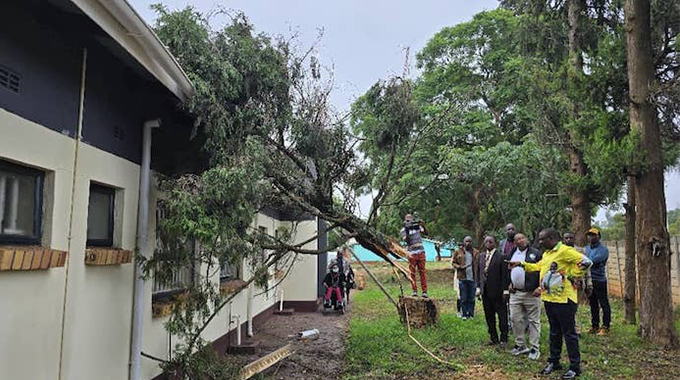Government reintroduces schools feeding scheme
Bongani Ndlovu, Chronicle Reporter
GOVERNMENT is set to reintroduce the supplementary feeding scheme for primary school pupils with Treasury expected to release funds for the programme, Primary and Secondary Education spokesperson Mr Taungana Ndoro has said.
In an interview on the sidelines of a tour of schools in Bulawayo that benefited from the Schools Improvement Grant (SIG) yesterday, Mr Ndoro said the school feeding scheme is critical, especially for learners in rural areas who walk long distances to school.
“Government intends to bring back the feeding scheme, which was stopped in 2020 due to the Covid-19 pandemic. For the schools, we want to at least provide one hot meal per day,” he said.
“We are actually very ambitious and our wish is that each learner is provided with at least two meals per day. The plan is that when they arrive at school, they get porridge, and then in the afternoon they get isitshwala and vegetables.”
Mr Ndoro said the ministry is waiting for the release of funds from the Treasury to resume the programme.
“Last year, there was a bumper harvest, which means we are going to buy grain from GMB and distribute it to schools. It will be the responsibility of the school and the community to have at least a nutritional garden where vegetables are grown. Parents will take turns cooking for the learners,” he said.
“The programme was disrupted by Covid-19 and we are still trying to recover from all that. Even the parents who used to help in the programme have been affected.”

Covid-19
Mr Ndoro said through the feeding scheme, children who walk long distances will be motivated to attend classes and be able to concentrate, which will contribute to better academic performances.
“A child would have walked say a distance of 10km to school. When he or she gets to school they will be tired and hungry, making it difficult for them to concentrate in class. Perhaps, they would have left home without eating,” he said.
Mr Ndoro said the provision of school meals is one of the most effective direct interventions in the health of learners and situating schools as places to promote education and nutrition.
“According to Maslow’s hierarchy of needs, first it’s food and shelter before you go to education… So, if we can provide these meals, the learner will be motivated to walk 10km knowing that when they get to school there’s a meal,” he said.
The World Food Programme noted that using school meals as an entry point contributes to improved education, food and nutrition security, health and has overall impacts in dressing social safety net.

Recent research has shown that providing in-school balanced meal increases the learner’s ability to concentrate and perform specific tasks.
The Ministry of Primary and Secondary Education received the highest budgetary allocation of $631,2 billion in the 2023 National Budget.

First Lady Dr Auxillia Mnangagwa has also launched a schools feeding programme aimed at ensuring children are well-nourished and free to pursue their education without challenges.












Comments